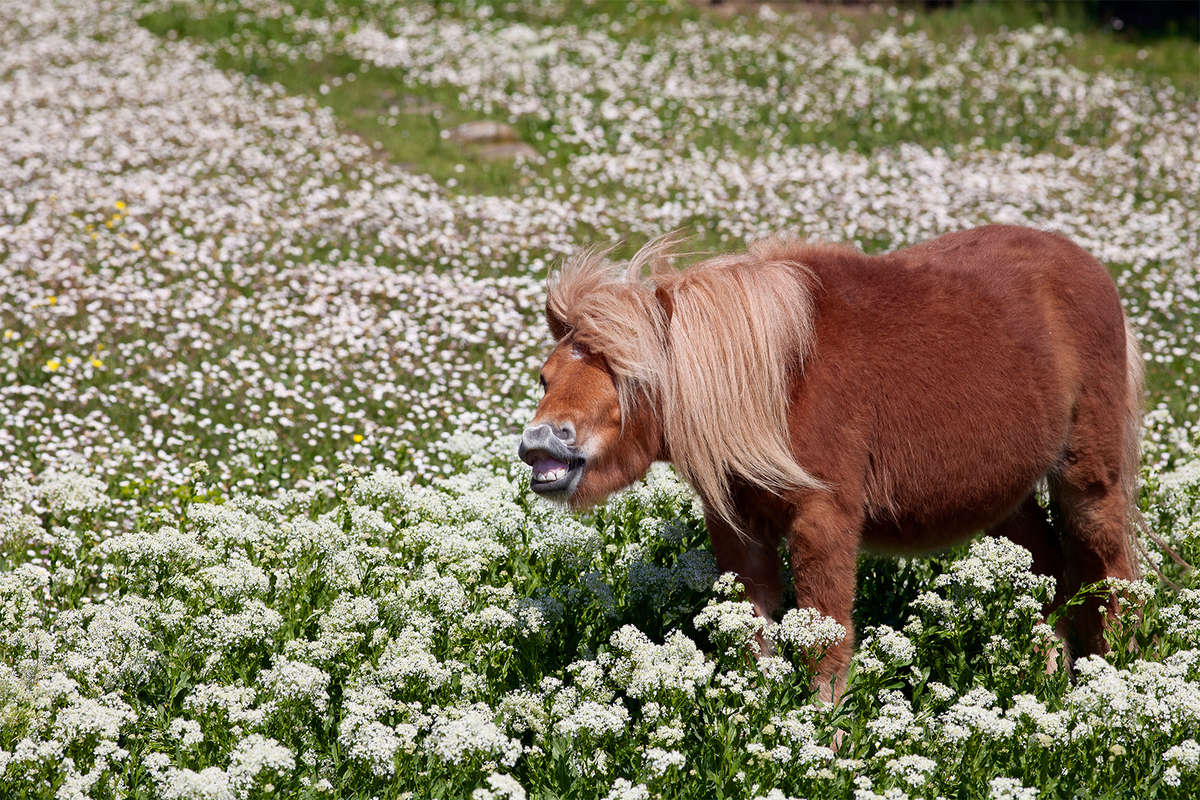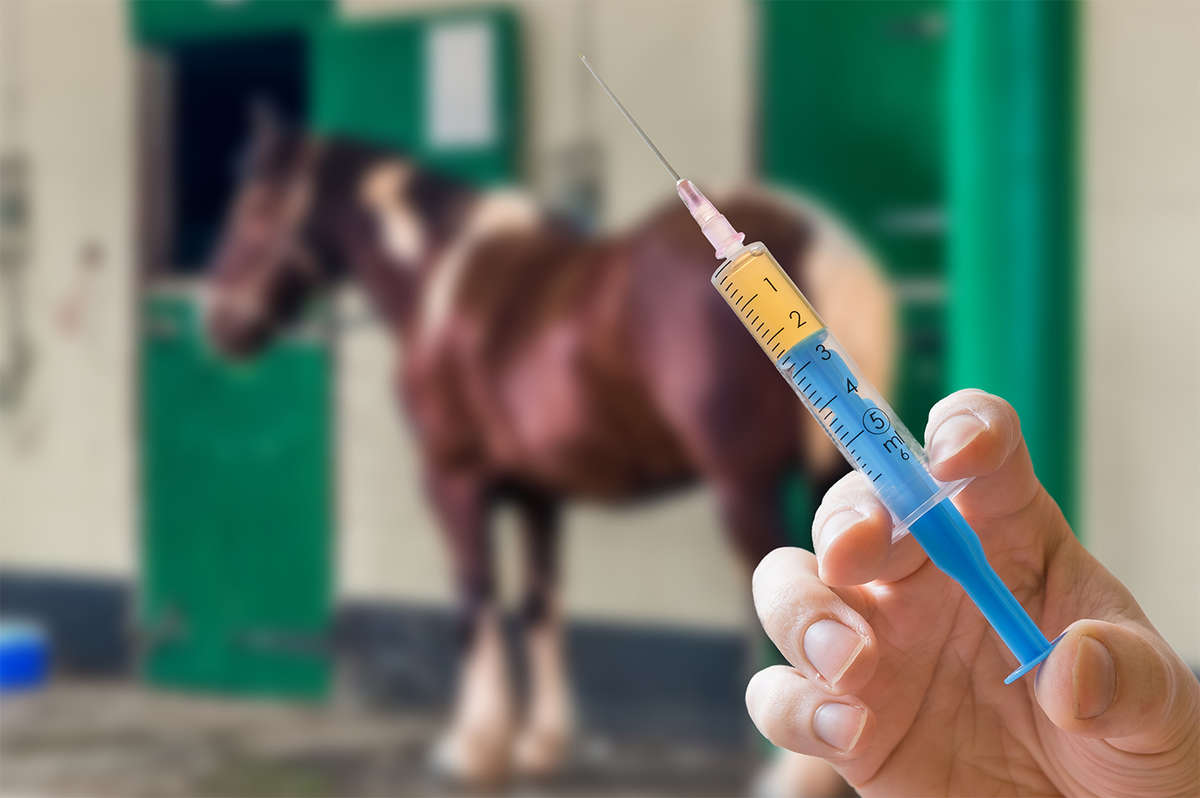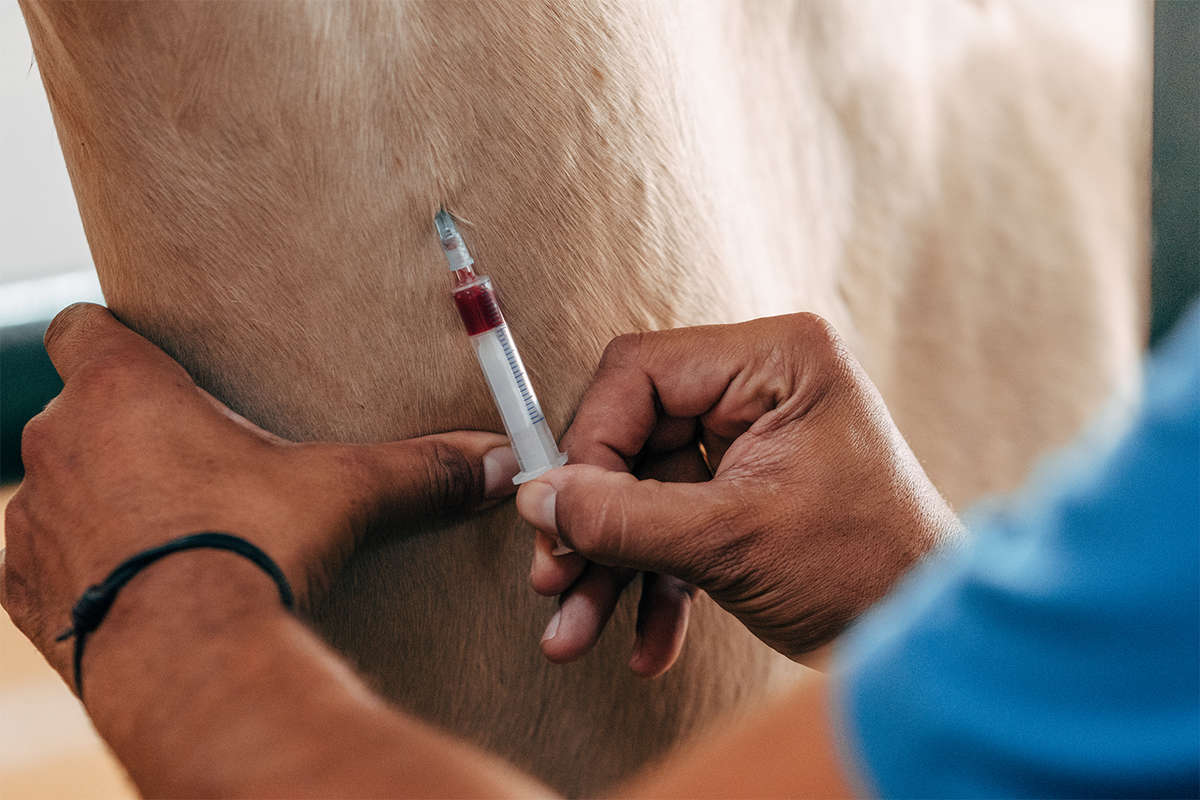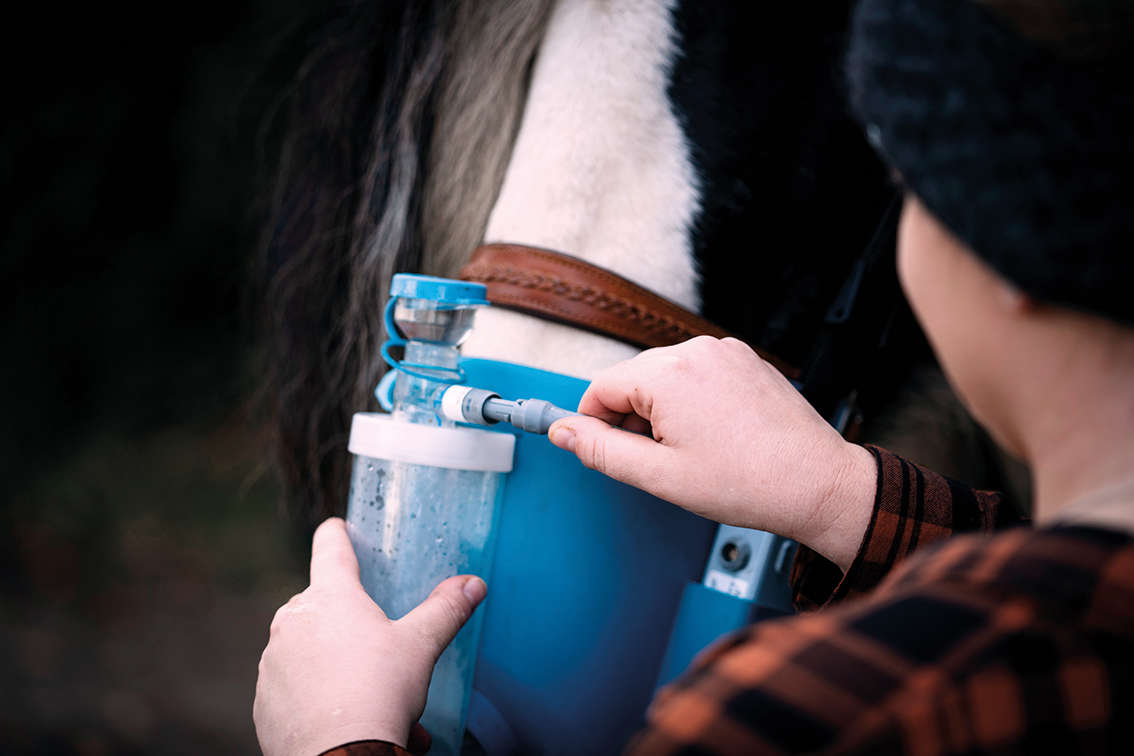Whether insects, mites or pollen: More than 20% of all
Horses have one or more allergies - and the trend is increasing. An alarming number and a cause for despair for many owners, because allergies often cause massive problems for horses: pollen and dust allergies often lead to massive respiratory problems, which in the worst case can lead to chronic illnesses. Horses with insect allergies often suffer from summer eczema and scratch their tails and manes until they bleed. People who are allergic to feed, on the other hand, have to deal with massive digestive problems and even colic. But how can you best support your horse? We'll tell you.
Horses have one or more allergies - and the trend is increasing. An alarming number and a cause for despair for many owners, because allergies often cause massive problems for horses: pollen and dust allergies often lead to massive respiratory problems, which in the worst case can lead to chronic illnesses. Horses with insect allergies often suffer from summer eczema and scratch their tails and manes until they bleed. People who are allergic to feed, on the other hand, have to deal with massive digestive problems and even colic. But how can you best support your horse? We'll tell you.

The classic: Hyposensitization
Hyposensitization , also known as desensitization , is one of the therapeutic approaches that is already being used successfully in human medicine to treat allergies. A precise diagnosis by a vet is important for hyposensitization – treatment can only begin when it is known which allergens the horse is allergic to. During hyposensitization, small amounts of the allergen are injected under the skin. The vet repeats this at regular intervals with increasing allergen doses. This slowly guides the immune system towards tolerance: the body produces increased amounts of class G immunoglobulins, which neutralize the allergens without triggering an inflammatory reaction. This reduces the symptoms. Studies have shown that hyposensitization achieves very good results, particularly in allergic respiratory diseases – owners of horses with summer eczema have not yet been able to resort to this therapy because it has not yet been conclusively determined which allergens cause the symptoms.

The new ones: autohemotherapy and counter-sensitization
Autologous blood treatment
During autohemotherapy, the veterinarian tries to trick the horse's immune system: By taking blood from the vein and then injecting it under the skin, the horse's immune system recognizes the blood as a foreign body and therefore also the antibodies it contains. This causes the immune system to fight the antibodies and prevent them from binding to the allergens. Since it is the antibodies that trigger inflammatory reactions by binding to the allergens, the inflammatory reactions are stopped. However, the effectiveness of autohemotherapy in horses is highly controversial: to date, there are no reliable studies on the success of autohemotherapy. Long-term studies in particular are often lacking in both the human and horse sectors.
Counter-sensitization
So-called countersensitization is a special form of autohemotherapy. In this process, the blood taken from the horse is mixed with an organic serum activator in a laboratory, which is intended to bind the excess antibodies and thus increase their concentration. The serum created in this way is gradually injected into the horse. This is intended to cause the body to gradually form antibodies against the antibodies and interrupt the chain of reactions in the allergy. However, just like autohemotherapy, the effectiveness of countersensitization has not been proven.

Acute or preventive: medication
Medications are a frequently used form of therapy, particularly in acute phases, due to their rapid effect. Which medications are used depends on the severity and type of allergy. Medications can also be used permanently or for immediate treatment of acute conditions. In horses with severe allergies, two medications are mainly given:
- Antihistamines: Prevent the release of histamine, which causes inflammation.
- Cortisone: Strong anti-inflammatory, decongestant and antispasmodic effect. Is used especially for acute symptoms.
In addition to the medications that act directly on the allergy, medications are often used to alleviate the symptoms of the allergy. For example, mucus and bronchial spasm relievers can help horses with respiratory problems. For skin problems, however , antipruritic, wound-healing and disinfectant agents are used.

Prevention and support: Inhalation
Inhalation is a form of therapy that focuses exclusively on treating horses with respiratory problems. A special feature of inhalation: It can be used both preventively and for acute problems. Depending on the inhalation solution used, inhalation can achieve different effects:
Saline solution (0.9%): Moisturizes and nourishes the mucous membranes
Saline solution (0.9%): Moisturizes and nourishes the mucous membranes
Brine: Supports mucus dissolution
bi-medEctoin®: Moisturizes, nourishes and stabilizes the mucous membranes. In addition, bi-medEctoin® protects the respiratory tract from allergens such as dust and pollen and promotes mucus dissolution.
Medications: Various medications such as cortisone reach the mucous membranes directly through inhalation and can exert their effect there in a targeted manner.
You can find out more information about how bi-medEctoin® works here.

